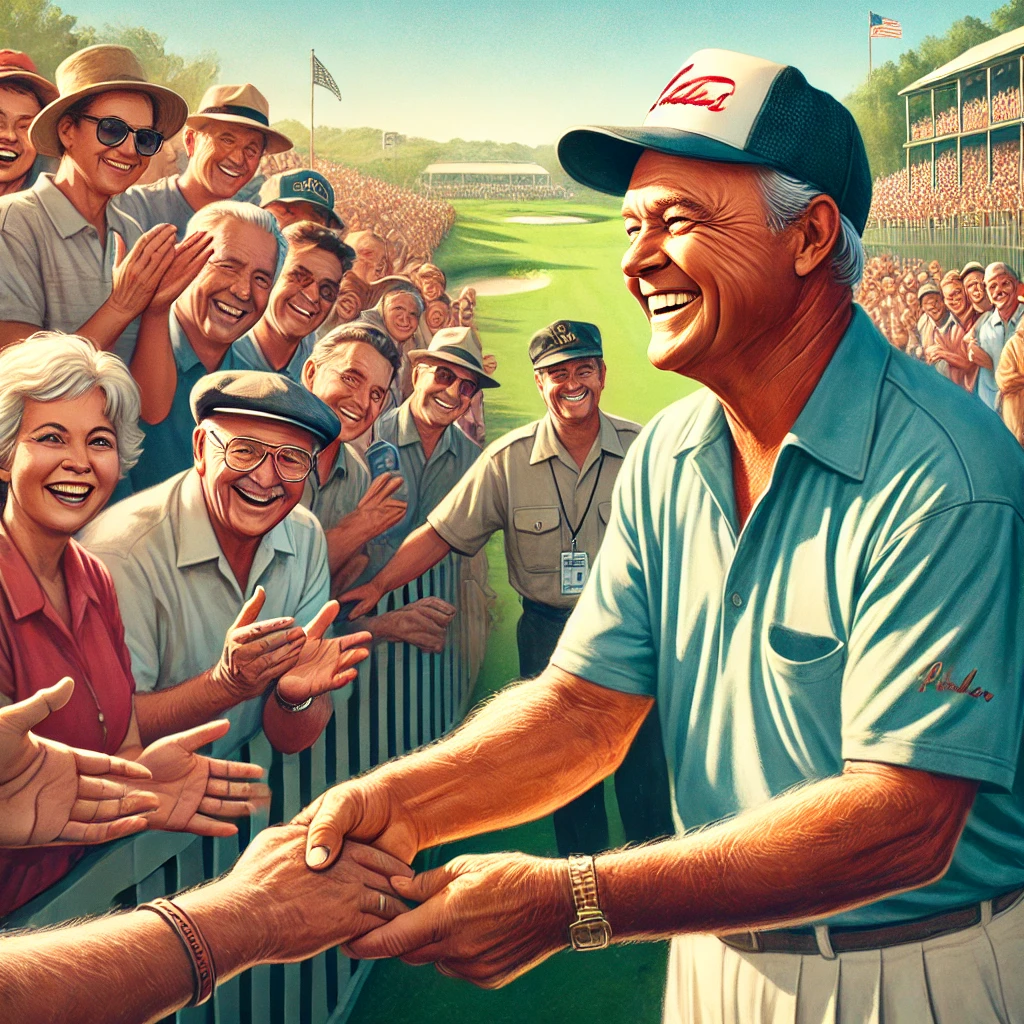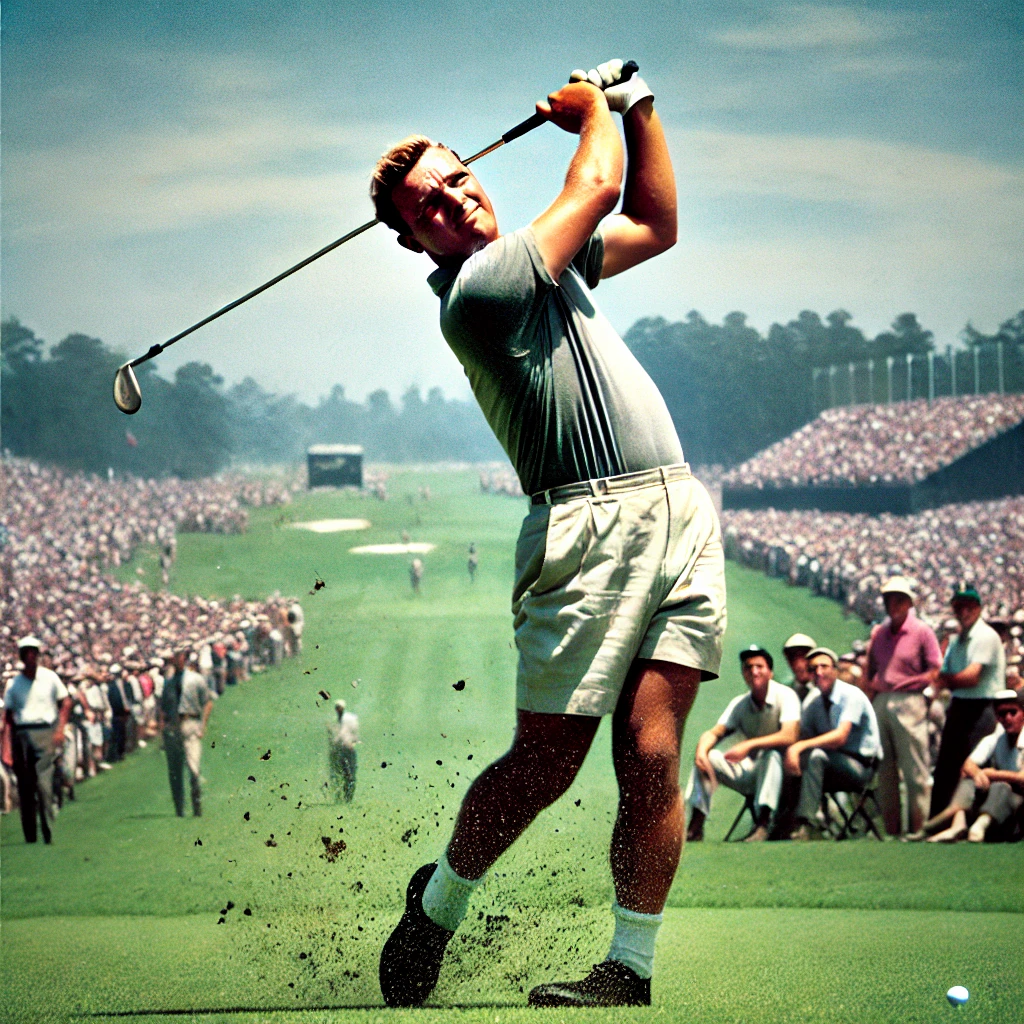The Passing of a Legend
On September 25, 2016, the world of sports lost one of its greatest icons when American golfer Arnold Palmer passed away at the age of 87. Known for his unorthodox swing and fearless approach to the game, Palmer became one of golf’s most successful and beloved figures. His charisma, humility, and connection with fans earned him the nickname “The King,” and he was instrumental in popularizing the sport during the 1950s and 1960s. Palmer’s passing marked the end of an era, but his influence on golf continues to be felt today. More than just a sportsman, Arnold Palmer became a symbol of sportsmanship, class, and integrity. His life and career are remembered as much for the way he played the game as for the impact he had on the culture of golf and its global reach.

Revolutionizing the Game with Passion and Power
Arnold Palmer’s rise to prominence in the world of golf was unique. Born in Latrobe, Pennsylvania, in 1929, Palmer developed his skills at a young age under the guidance of his father, who worked as a golf course superintendent. Despite his unorthodox swing and aggressive style, Palmer found success quickly, winning his first major tournament, the Masters, in 1958. Over the course of his career, he would go on to win seven major championships, including four Masters titles, making him one of the most accomplished golfers of his time.
Palmer’s aggressive approach to the game, marked by bold shots and fearless drives, set him apart from his peers. His risk-taking style thrilled fans and helped redefine how golf was played, bringing a new level of excitement to the sport. For many, Palmer embodied the idea that golf could be both competitive and fun, a sport where athletes played with both skill and heart.

Building an Unmatched Connection with Fans
One of the hallmarks of Arnold Palmer’s legacy was his ability to connect with fans. Dubbed “Arnie’s Army,” Palmer’s loyal fanbase followed him from tournament to tournament, creating a sense of camaraderie and excitement that was unprecedented in golf. Palmer had an everyman appeal, and his down-to-earth personality made him accessible to fans from all walks of life. He broke the image of golf as an elitist sport, opening the game to a broader audience. Palmer’s relationship with fans was built on mutual respect. He understood the importance of his supporters and always made time to sign autographs, engage with the public, and thank those who cheered him on. This connection helped him transcend the sport and become a cultural icon, admired not just for his skill but for the way he carried himself on and off the course.
The Businessman Behind the Athlete
In addition to his success on the golf course, Arnold Palmer was a pioneering businessman. He was one of the first athletes to fully embrace the power of endorsement deals, helping to transform sports marketing. His partnerships with brands like Rolex, Hertz, and Pennzoil, and his role in the creation of the popular “Arnold Palmer” iced tea-lemonade drink, showed his ability to connect with audiences beyond golf.
Palmer also played a key role in the founding of the Golf Channel and helped establish a new era of televised golf, expanding the sport’s reach to millions of viewers worldwide. His business acumen helped set the stage for the multi-billion-dollar industry that golf has become today, making him one of the most influential figures in the history of the sport.

A Lasting Impact on Golf and Sportsmanship
Arnold Palmer’s influence on golf goes far beyond his achievements on the course. He helped popularize the sport at a time when it was struggling to attract younger audiences, and his charisma helped bring golf into the mainstream. His rivalry with Jack Nicklaus and Gary Player during the 1960s, known as the “Big Three,” created some of the most exciting moments in golf history and further fueled the sport’s popularity. Palmer’s legacy also extends to his role as an ambassador for sportsmanship. Throughout his career, he exemplified class and humility, qualities that earned him admiration from fellow athletes and fans alike. He was awarded numerous honors, including the Presidential Medal of Freedom in 2004 and the Congressional Gold Medal in 2009, in recognition of his contributions to sports and society.
The King’s Legacy Lives On
Though Arnold Palmer passed away in 2016, his legacy continues to shape the world of golf. His name is synonymous with the sport, and his influence can still be seen in the way today’s athletes approach the game. Modern golfers like Tiger Woods and Phil Mickelson have credited Palmer as a major inspiration, both for his playing style and his ability to connect with fans.
Palmer’s philanthropic work also lives on through the Arnold Palmer Hospital for Children and other charitable endeavors he supported throughout his life. His dedication to giving back ensures that his impact will continue to be felt for generations to come.
Arnold Palmer may no longer walk the fairways, but his spirit remains at the heart of the sport he loved. His legacy as “The King” of golf is secure, and his contributions to the game and to sportsmanship will be remembered for years to come.
